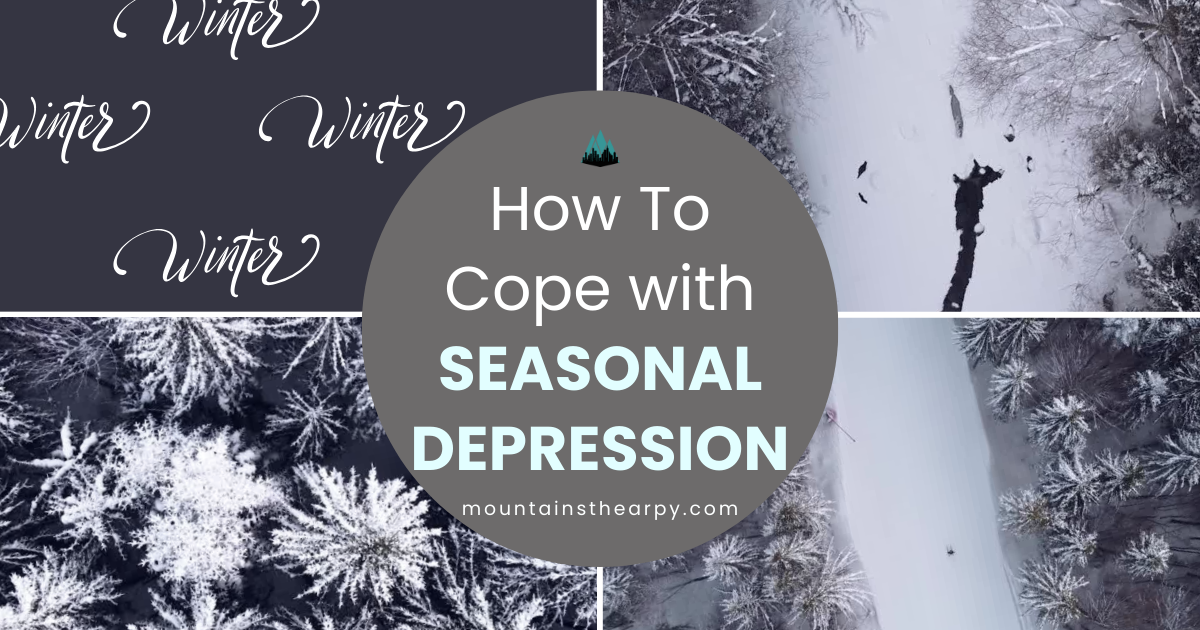How to cope with Seasonal Depression
Learn more about Seasonal Depression Therapy.
In This Blog, You’ll Learn:
- What seasonal depression feels like and why it happens
- Effective coping strategies, including therapy and lifestyle changes
- When and how to seek professional support
Seasonal depression, also known as Seasonal Affective Disorder (SAD), can sneak into your life like an uninvited guest, especially during the colder, darker months. But you’re not alone in this journey, and there are ways to navigate through the gloom. Whether you're experiencing fatigue, mood swings, or that unmistakable heaviness in your heart, we’re here to help you understand and manage seasonal depression.
What Seasonal Depression Feels Like
Do you feel more tired than usual or struggle to get out of bed? Maybe you’ve noticed a shift in your mood, as if the world has lost a bit of its color. What does seasonal depression look like? It often includes symptoms like low energy, difficulty concentrating, and a desire to hibernate. Some people even wonder, can seasonal depression make you feel sick or cause physical symptoms? The answer is yes, it can. It’s not “just in your head." SAD is real and affects both your mind and body.
Why Seasonal Depression Happens
Many ask, why does seasonal depression happen or why is my seasonal depression so bad? It’s often linked to the reduced sunlight during fall and winter, which disrupts your body’s internal clock, serotonin levels, and melatonin production. These changes can trigger feelings of depression and fatigue. Interestingly, can seasonal depression happen in the summer? Yes, though less common, some people experience summer-onset SAD, which comes with its unique challenges, such as anxiety and difficulty sleeping.
What Helps Seasonal Depression?
When seasonal depression starts to take over, the first step is recognizing it. Next, explore strategies to manage it:
- Light Therapy: Wondering how do seasonal depression lamps work? These special lights mimic natural sunlight, boosting serotonin levels and improving your mood. A daily session can make a big difference.
- Therapy: Talking to a therapist or counselor can help you process emotions and develop coping strategies. At Mountains Therapy NJ, we’re proud to be recognized as the best therapist Montclair NJ and have been voted best therapy in the area.
- Lifestyle Adjustments: Staying active, eating nourishing foods, and maintaining a consistent sleep schedule can work wonders.
- Vitamin Support: If you’re wondering, which vitamins for seasonal depression are helpful, Vitamin D is a common recommendation.
Can Seasonal Depression Be Cured?
While there’s no one-size-fits-all cure, many find that with the right combination of therapy, light exposure, and self-care, seasonal depression can become much more manageable. If you’re asking, can seasonal depression cause anxiety or make you tired, the answer is yes. However, professional support can help reduce these effects.
Why You Deserve Support
If you’re feeling overwhelmed, know that you’re not alone. Whether you’re searching for the best counselor near me, best therapist near me, or best therapy near me, Mountains Therapy NJ is here to guide you through this season. We’ve been voted best therapist for a reason—we deeply care about helping you find your way back to balance and wellness.
When to Seek Help
When does seasonal depression start? For many, symptoms begin in late fall and worsen during the winter months, often peaking around January. If you’re noticing that your sadness, fatigue, or lack of motivation is interfering with daily life, it may be time to reach out. We offer compassionate, tailored care because you deserve the best therapy available. Whether you're curious about how is seasonal depression treated, where to live with seasonal depression, or just need someone to talk to, we’re here to help.
Let’s Brighten Your Days Together
At Mountains Therapy NJ, we specialize in helping people just like you reclaim joy and purpose. If you’re ready to explore therapy with a counselor who understands, reach out today. There’s no need to face seasonal depression alone. By taking this step, you’re already moving toward the light. Remember, you’re worth it!
Contact us today to connect with a therapist for seasonal depression near me and counselor for seasonal depression near me.
POSTS
Elevate Mental Health Blog: Best Therapists of Montclair 2024
IMPORTANT: Call 988 Suicide and Crisis Lifeline 24/7, visit emergency room, or call 911, If you or someone you know are in a mental health crisis or be in danger.
All Rights Reserved | Mountains Therapy LLC











